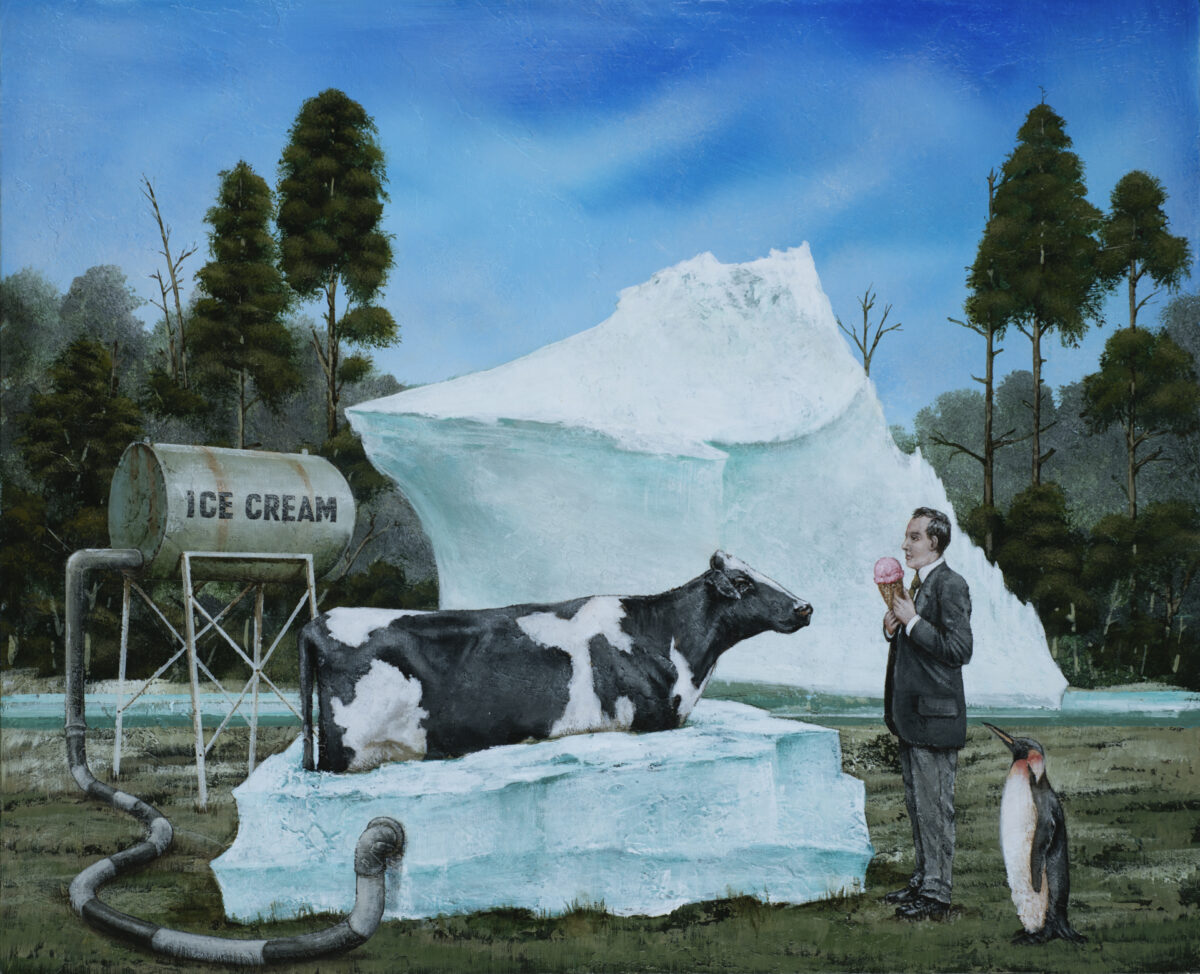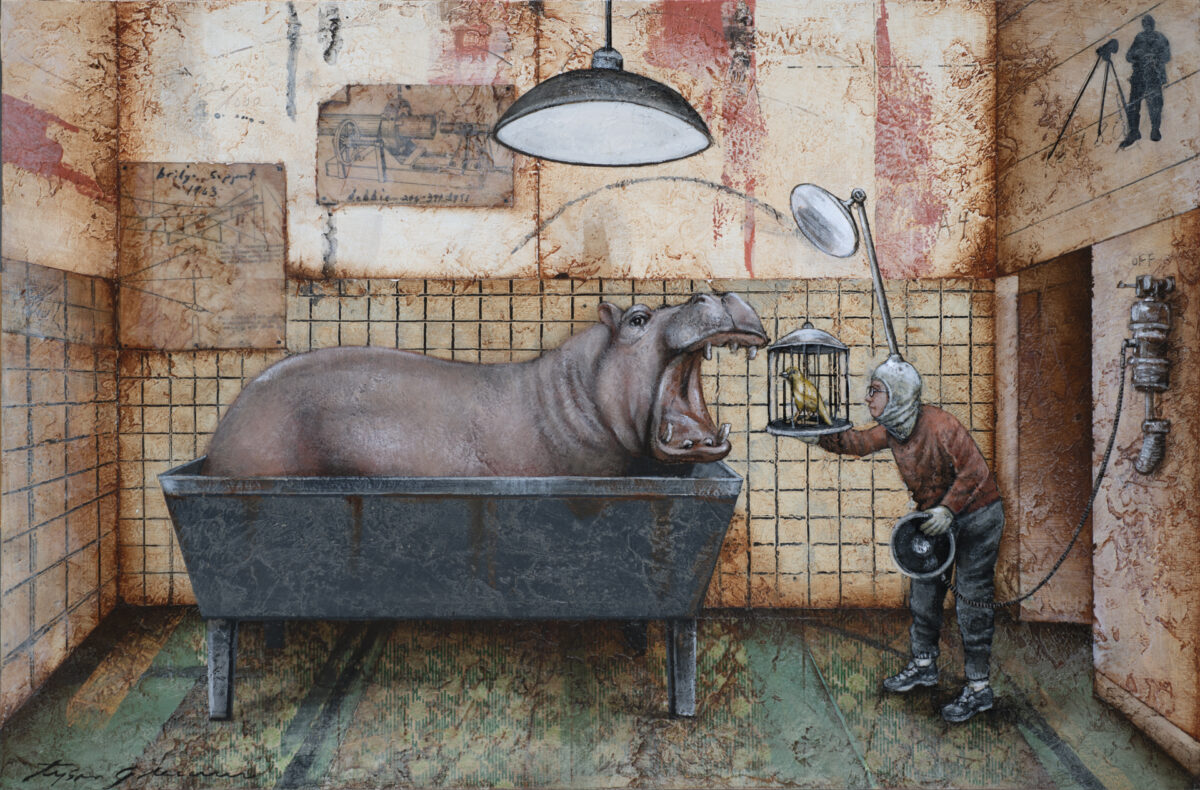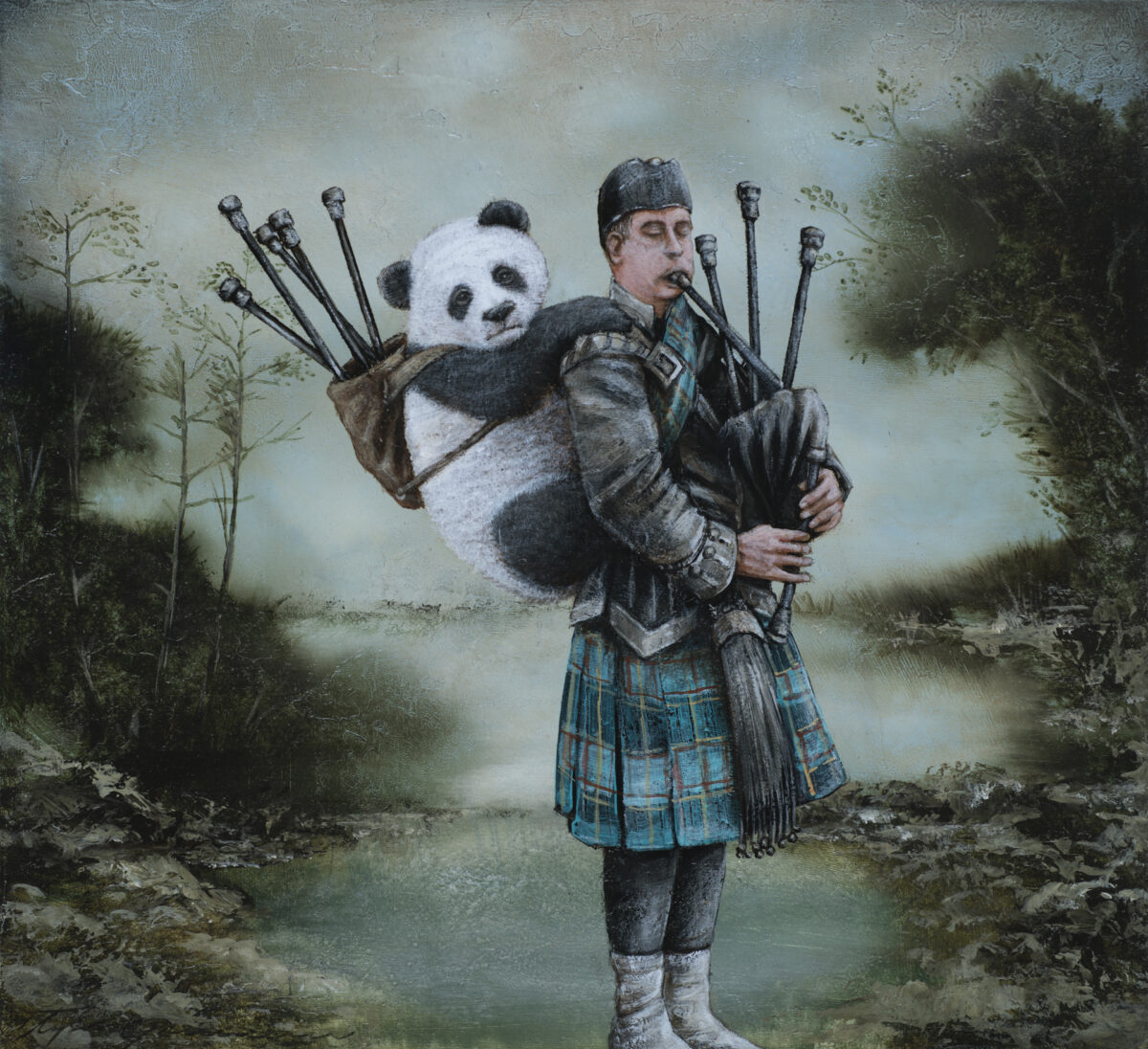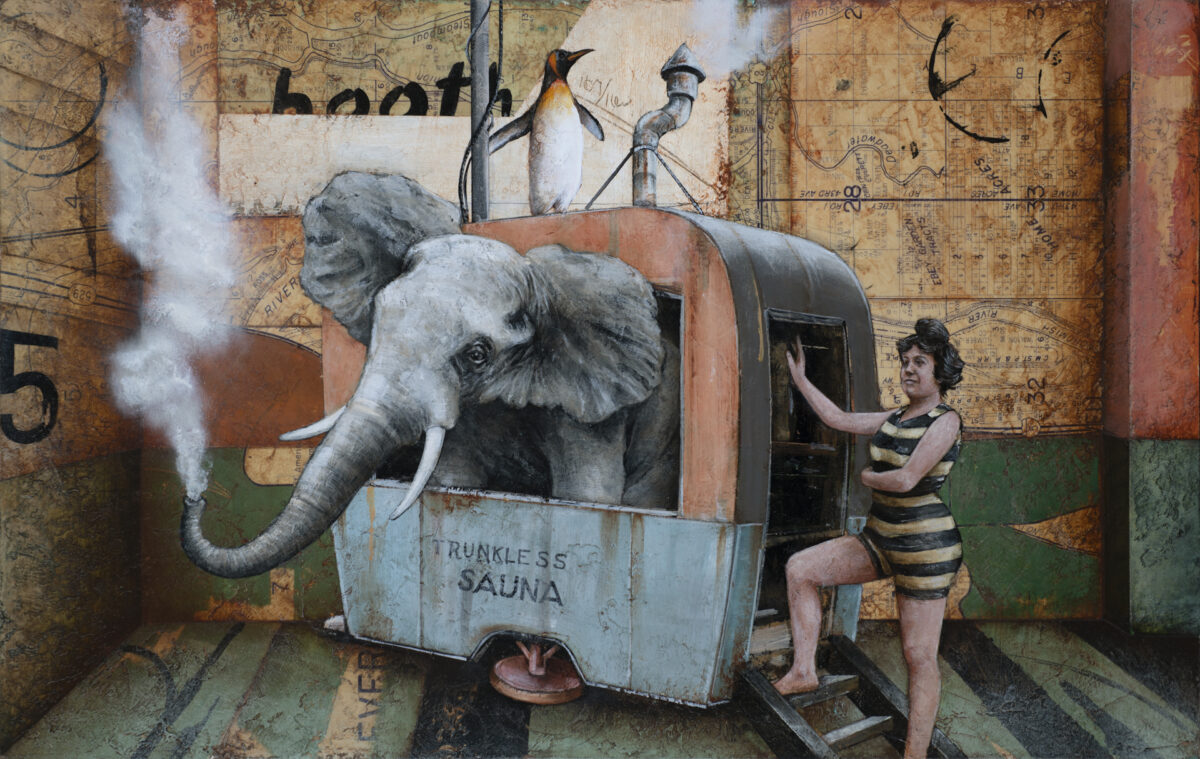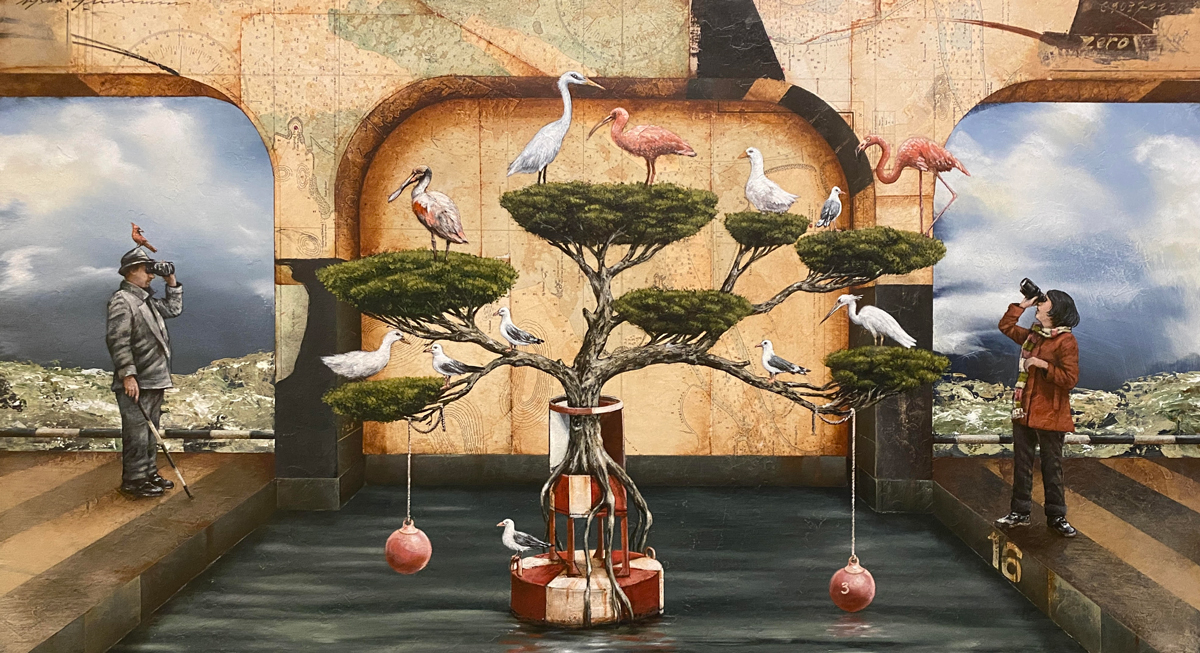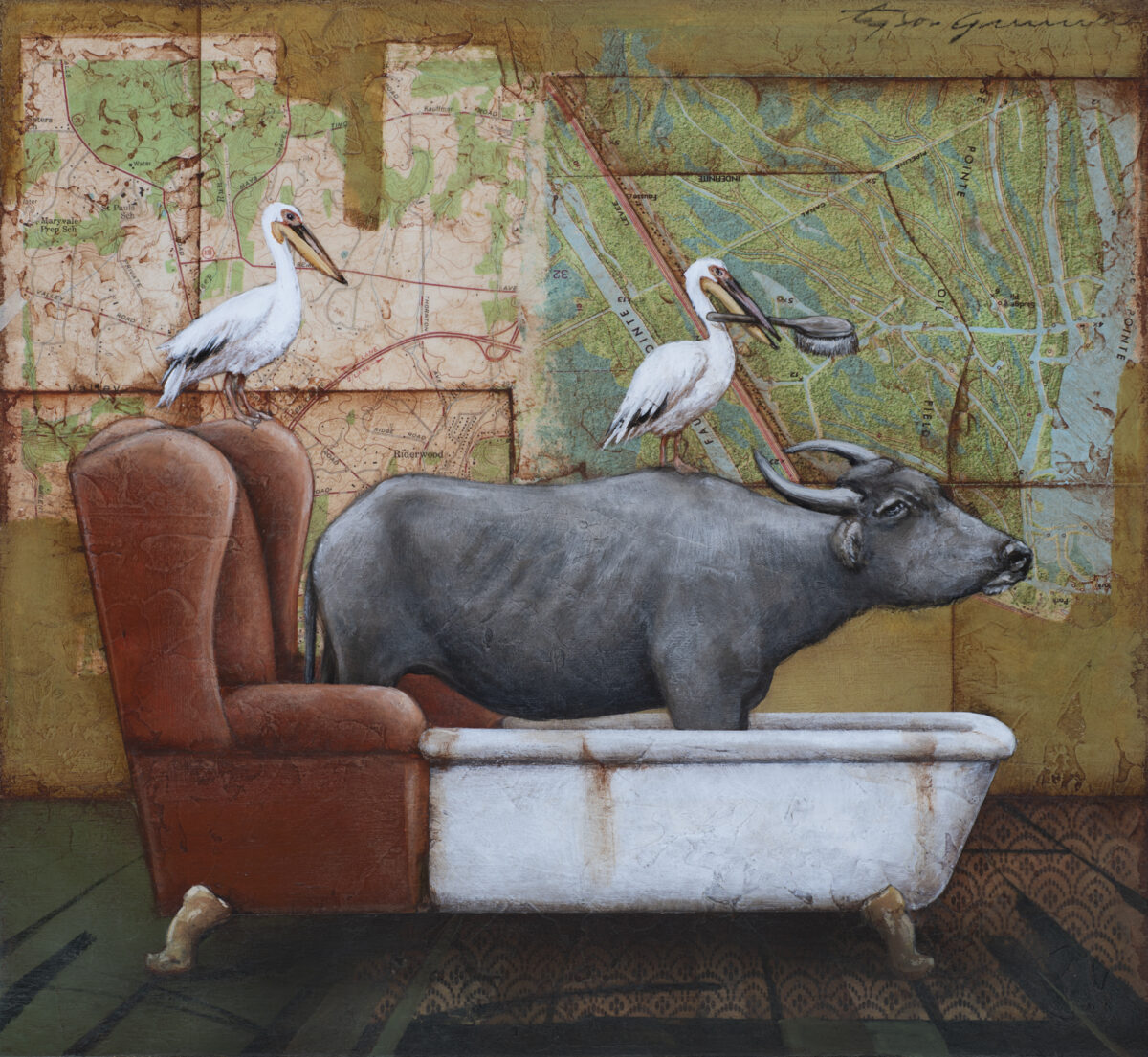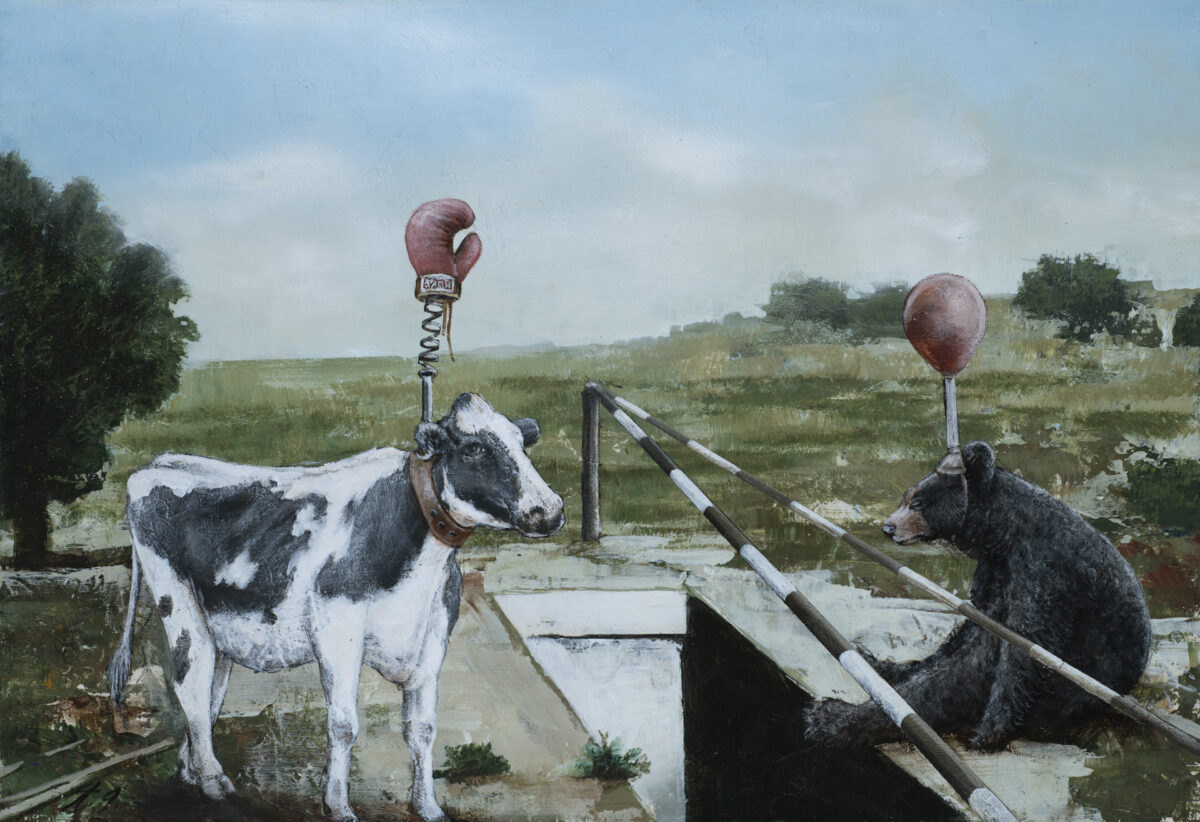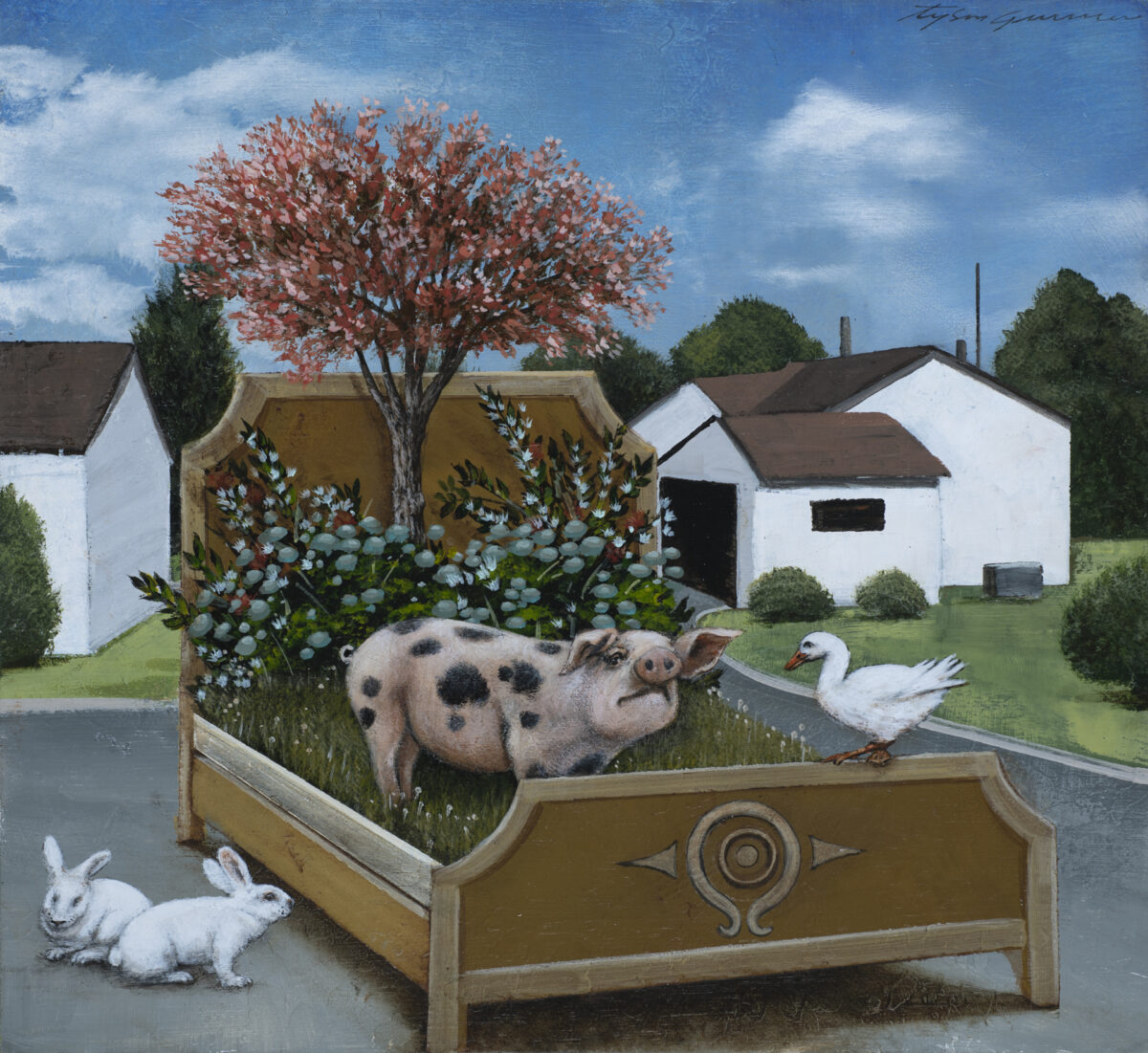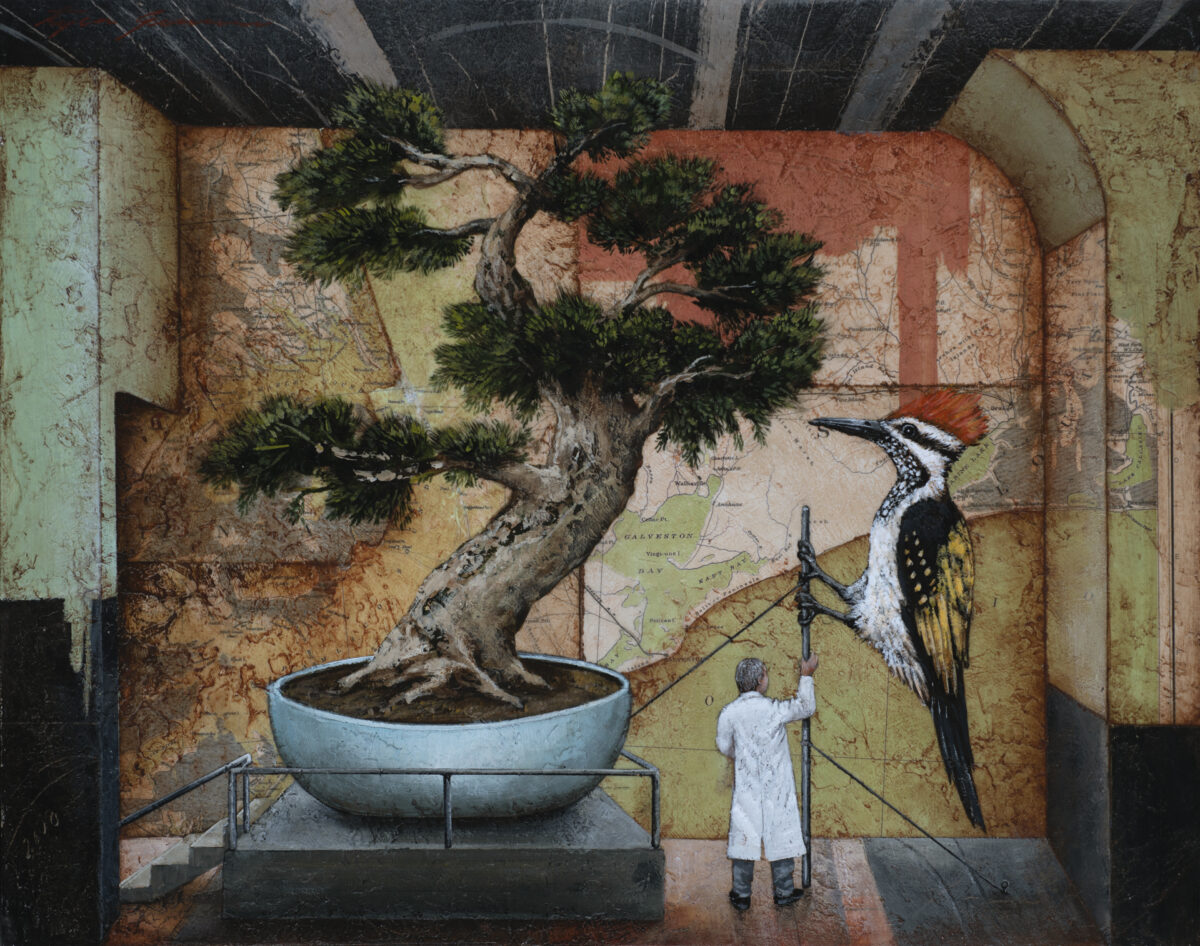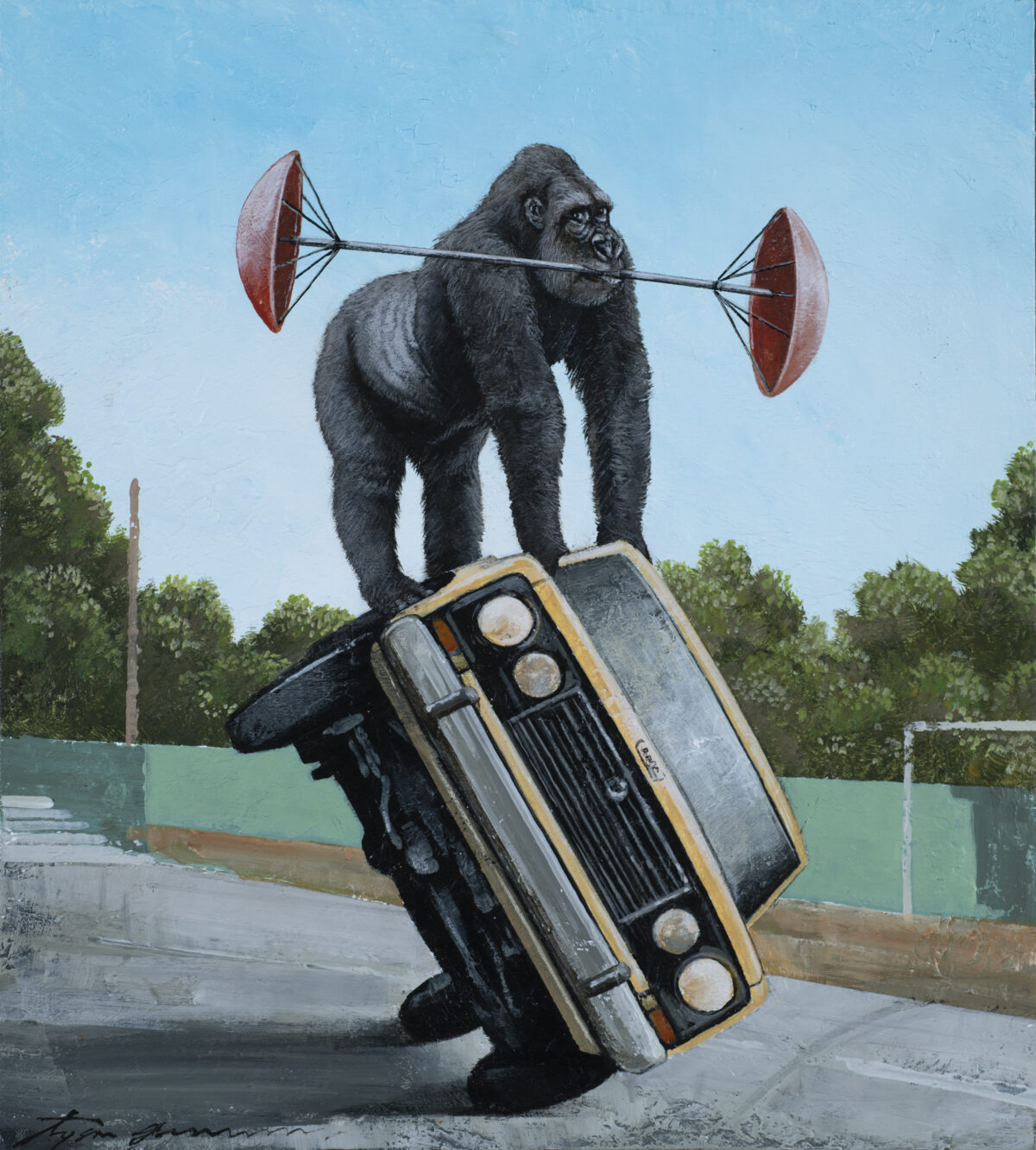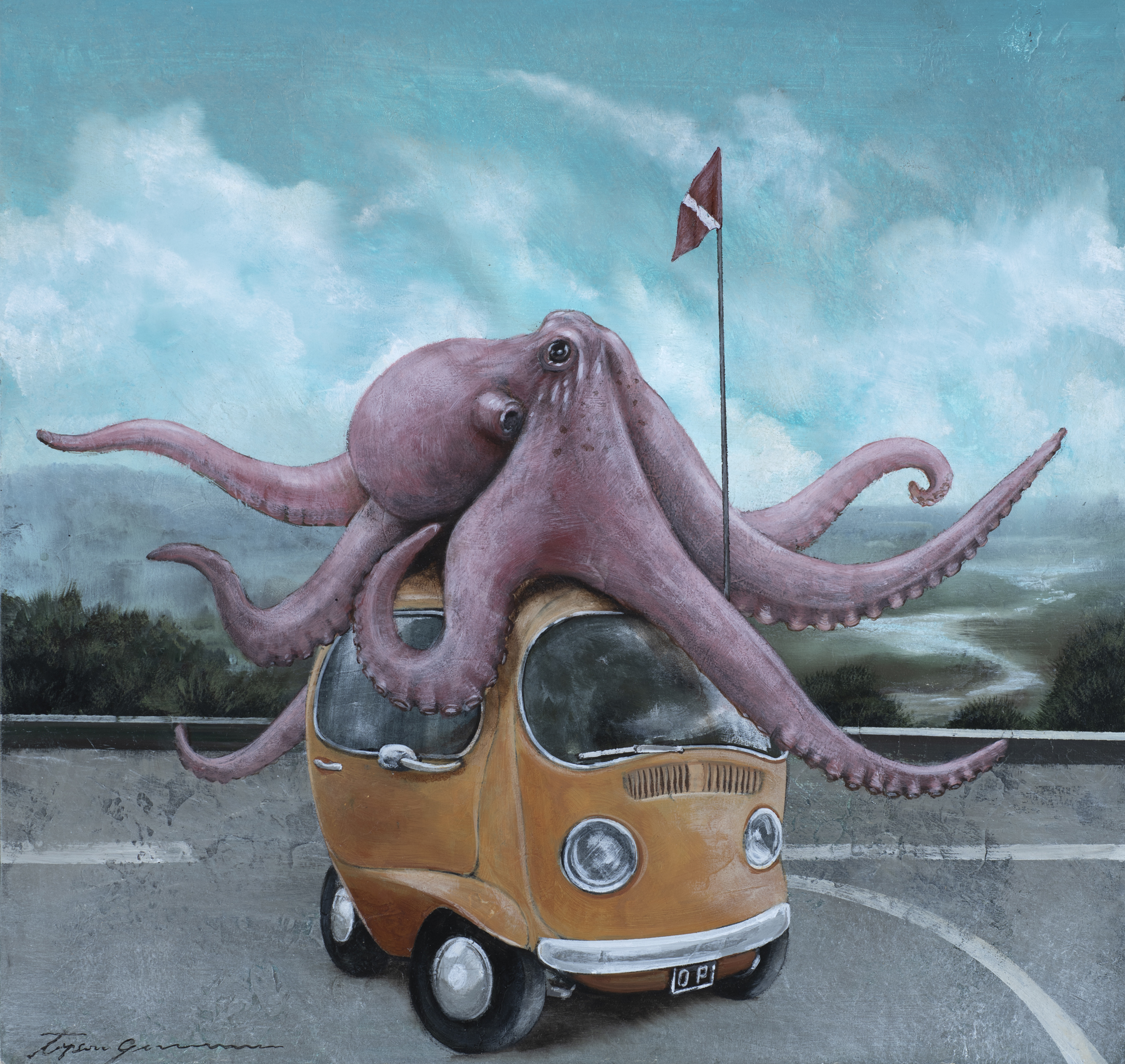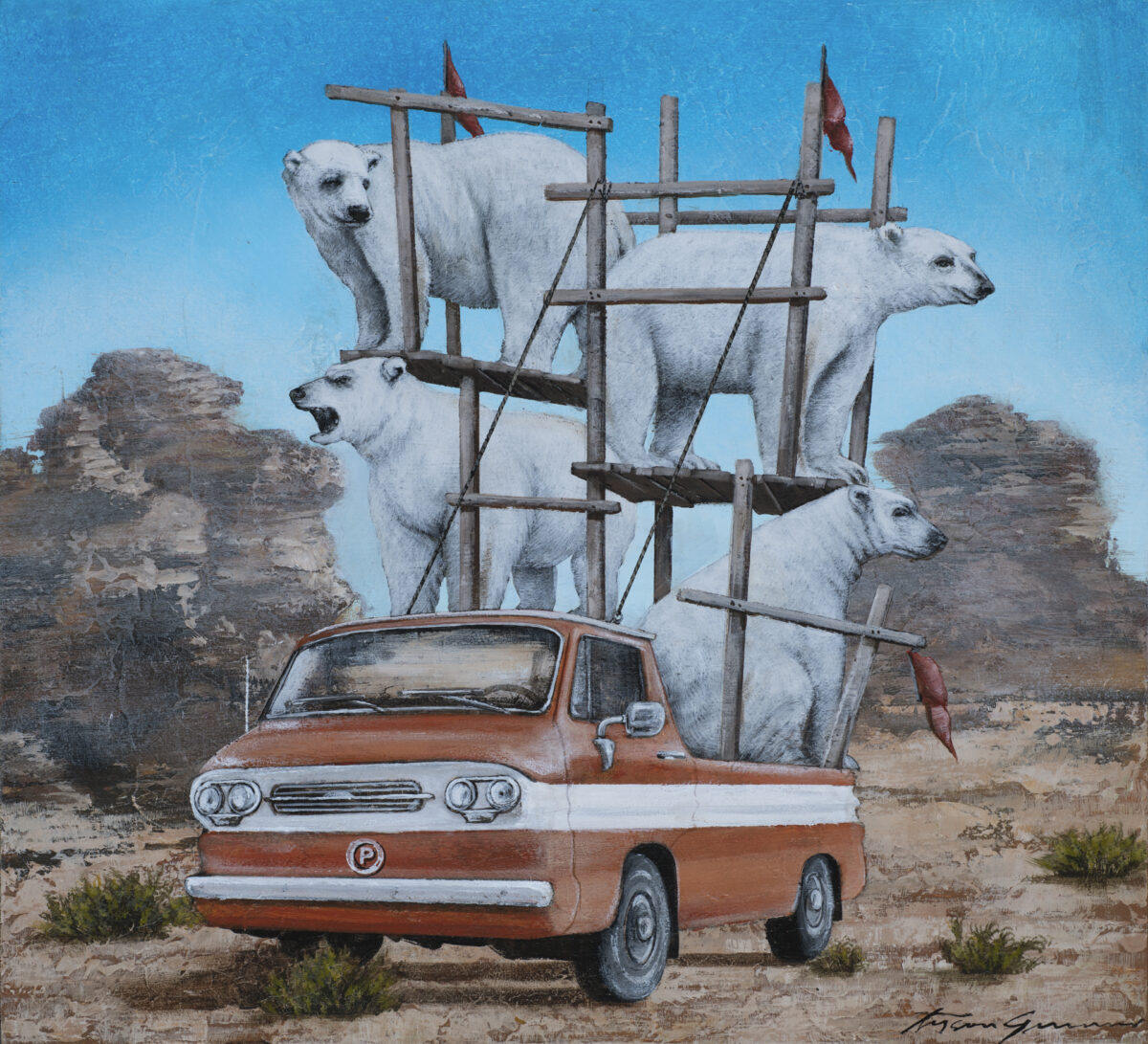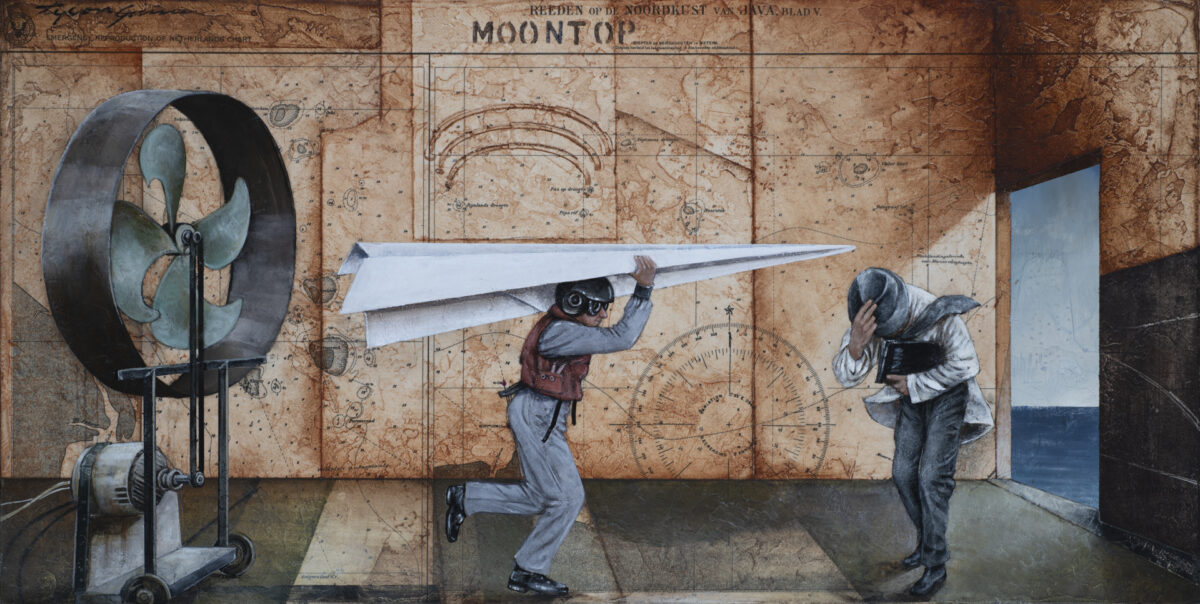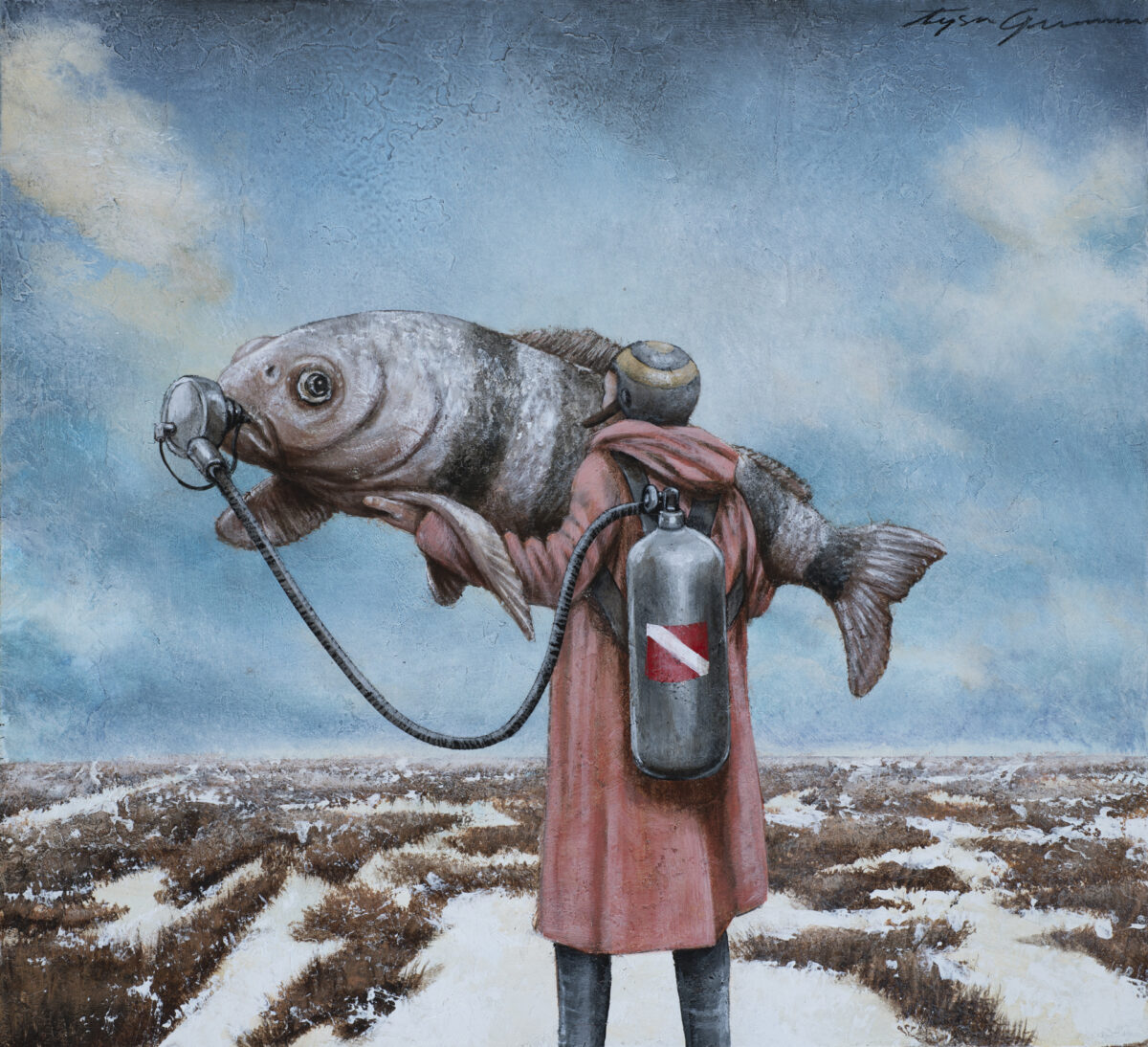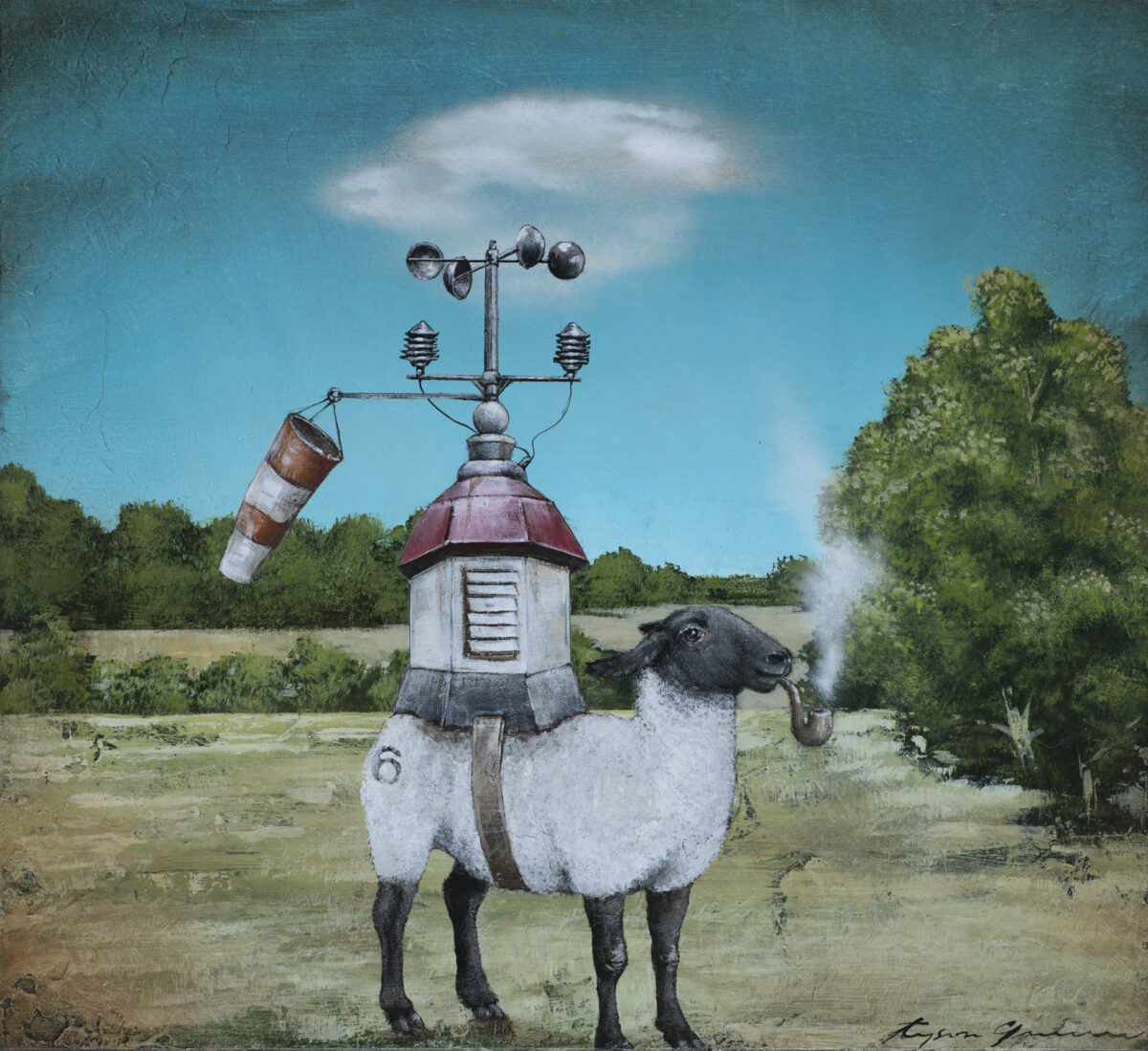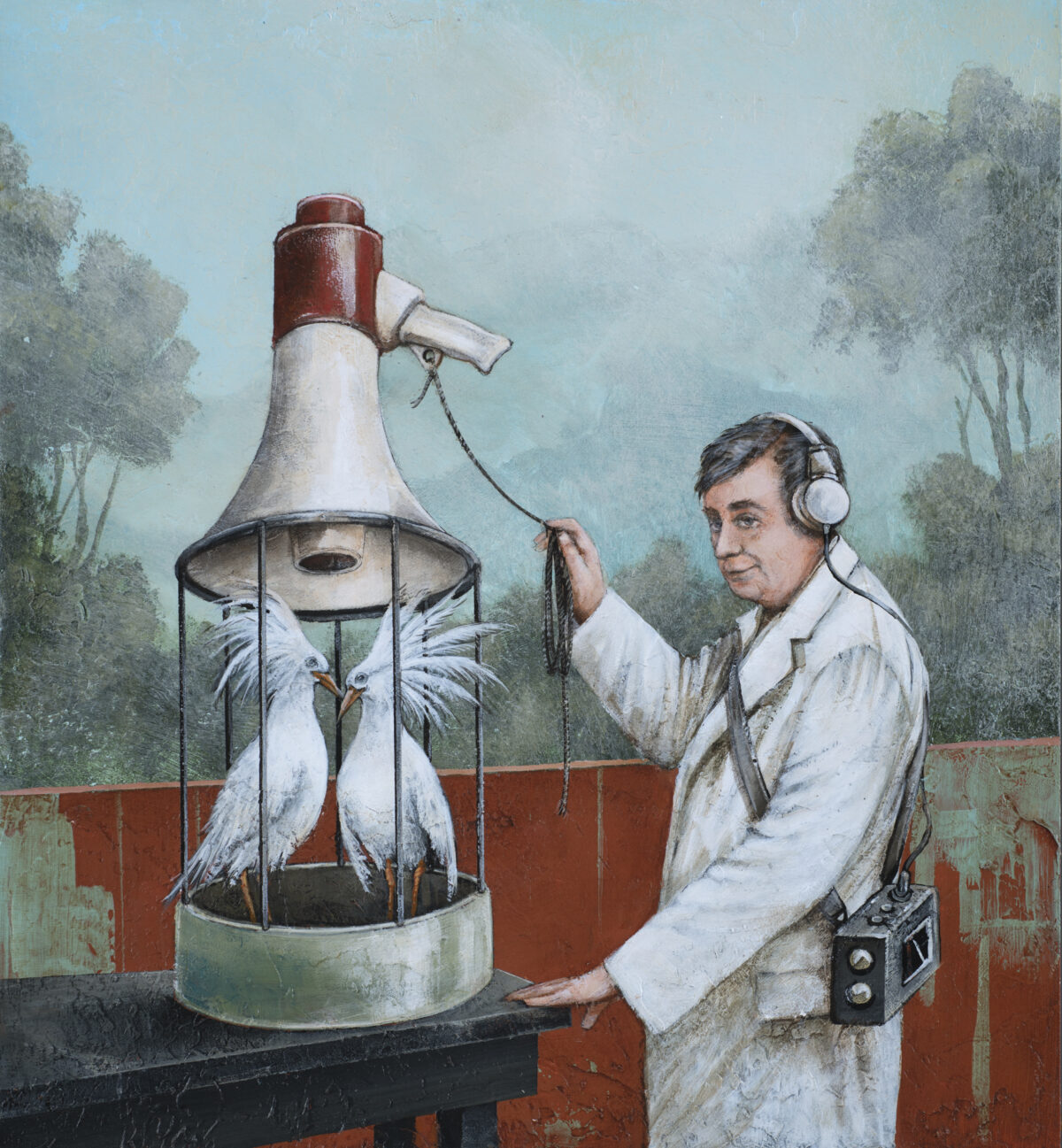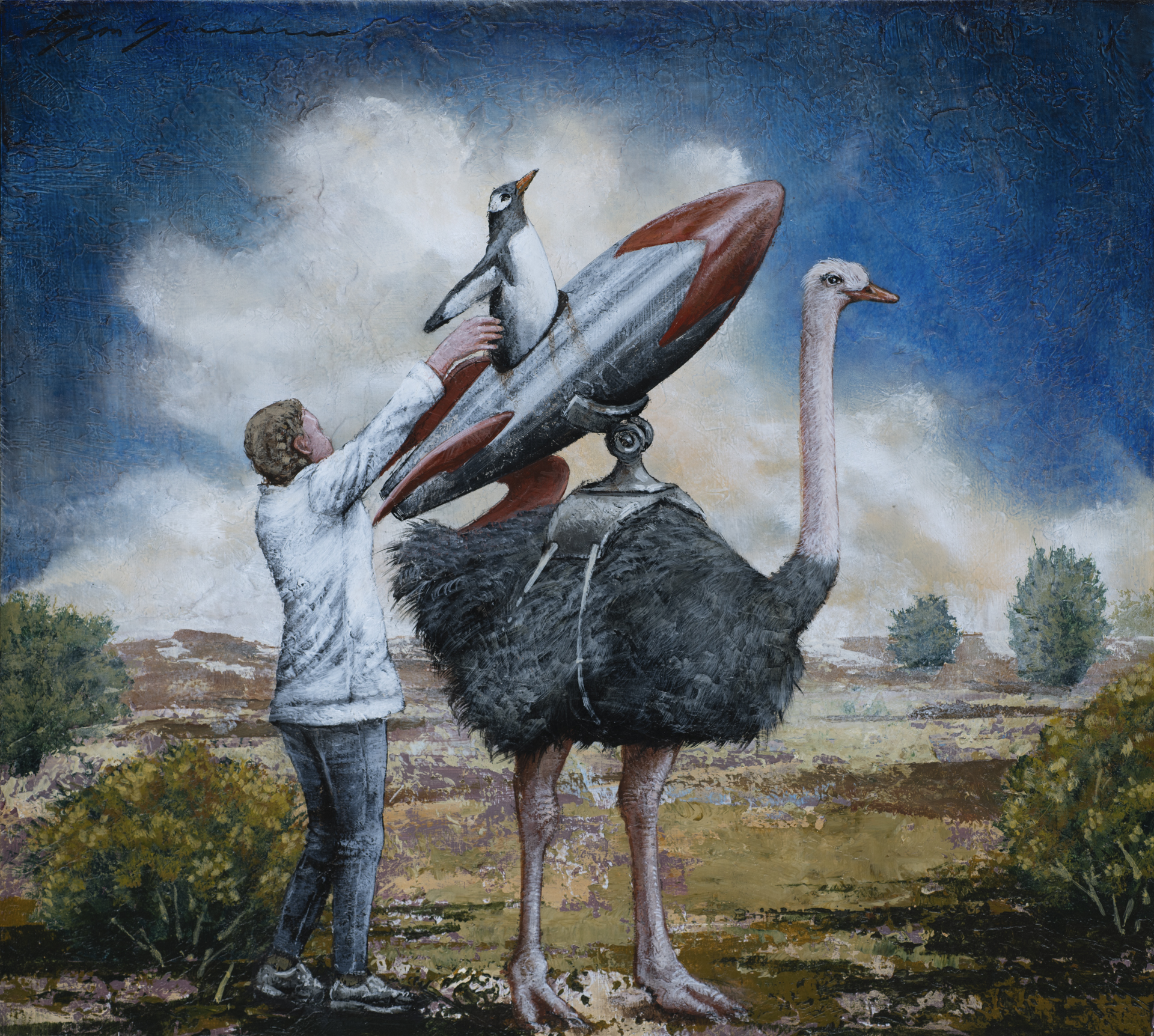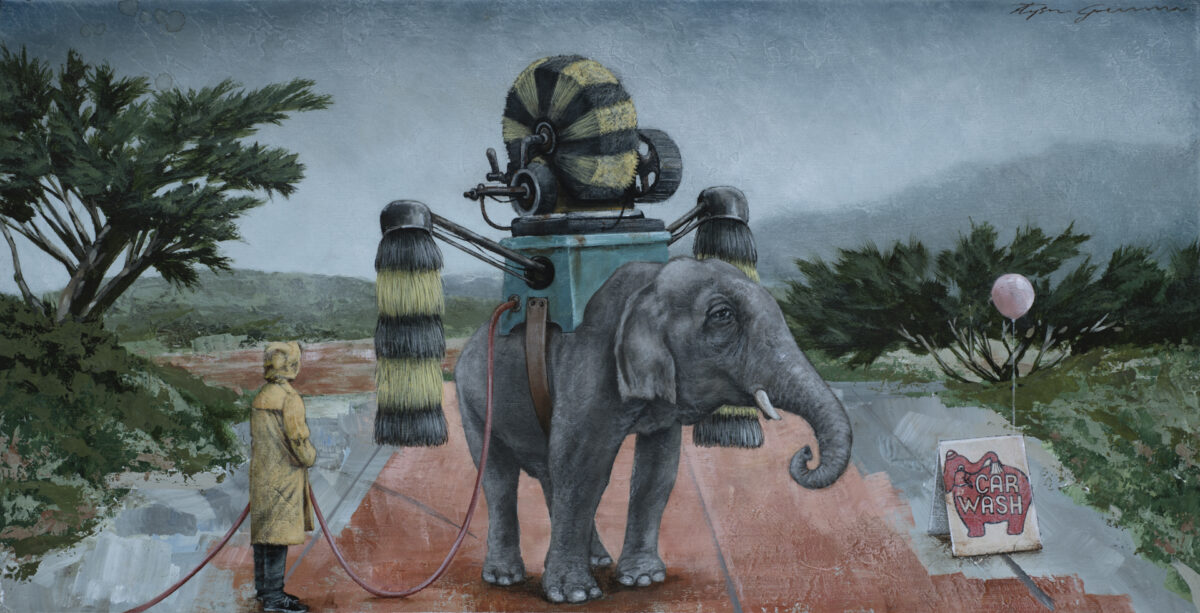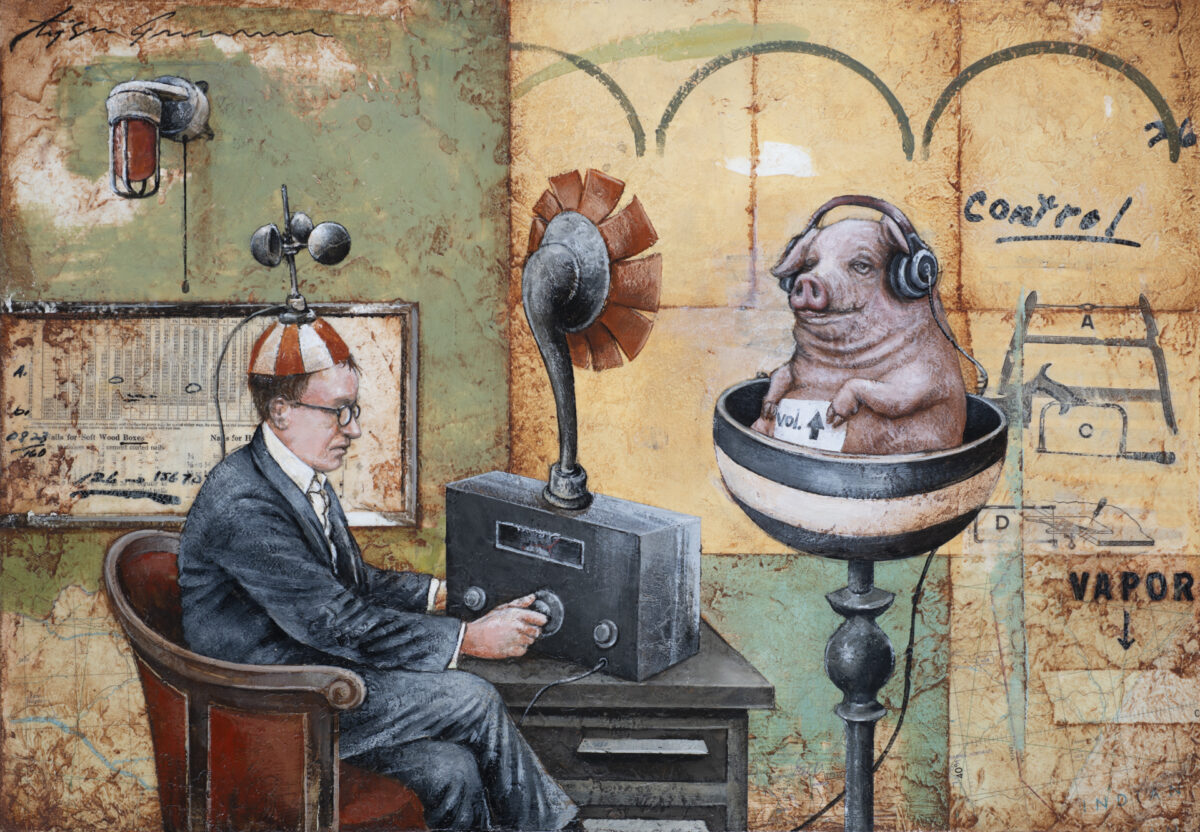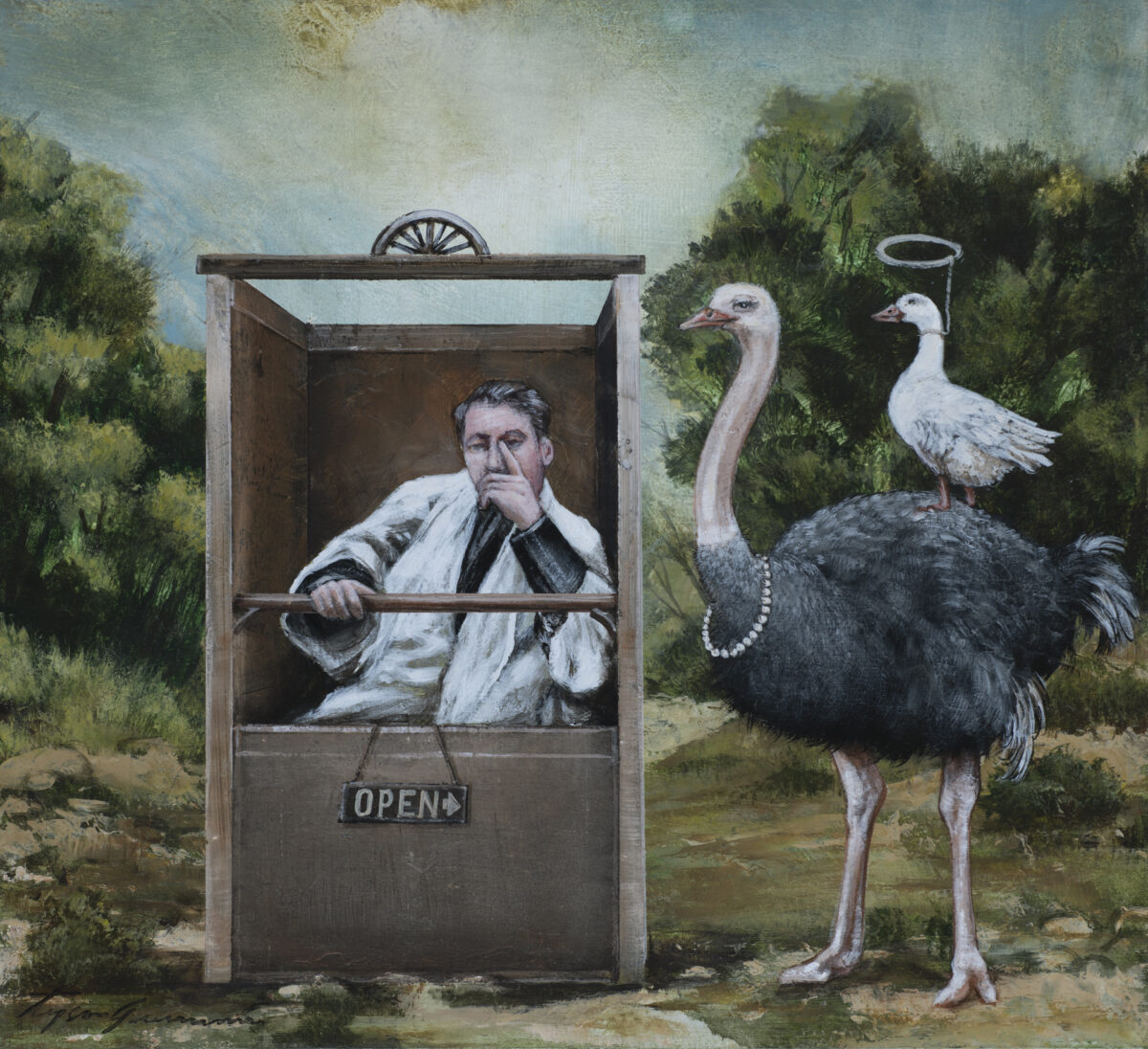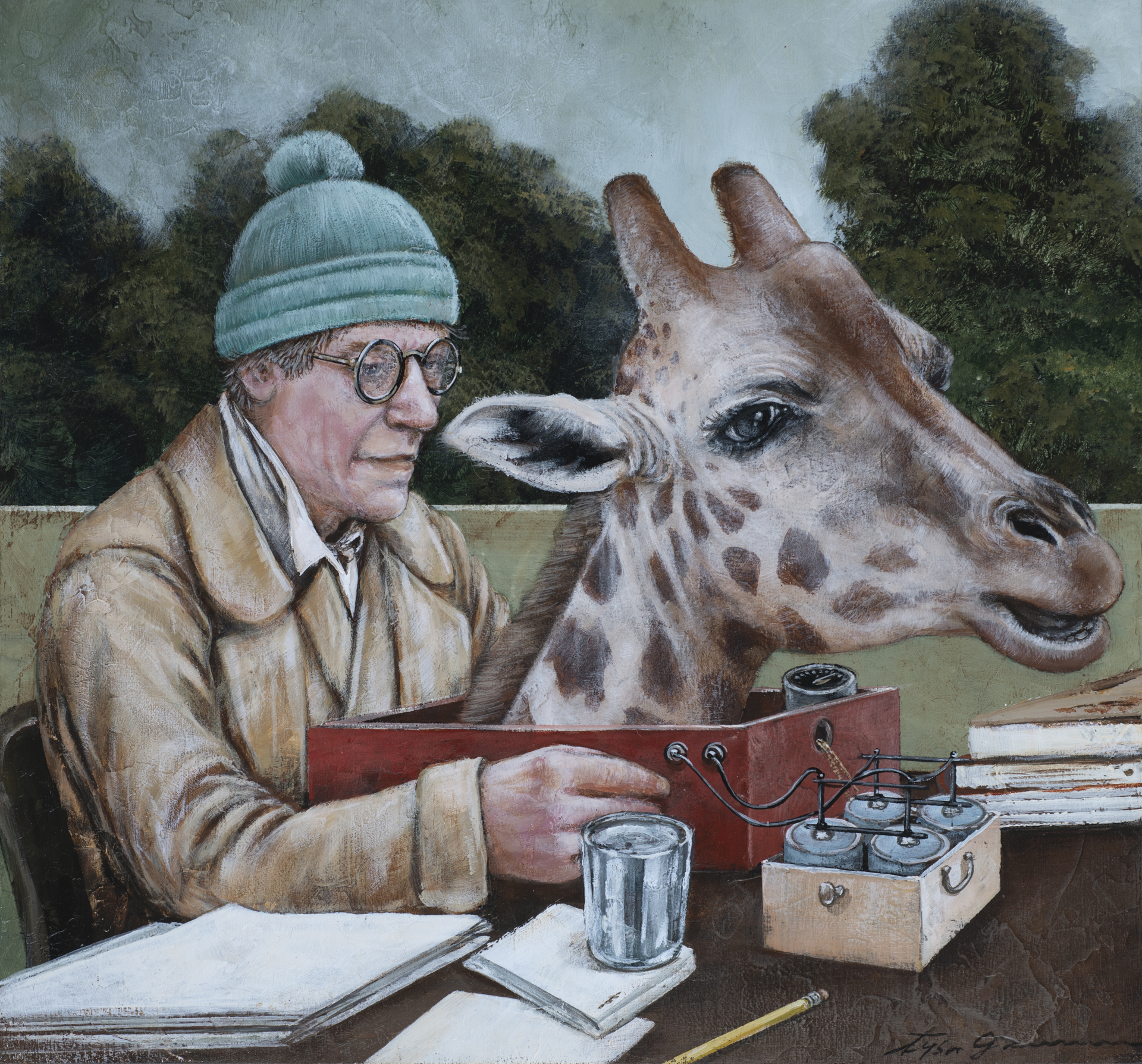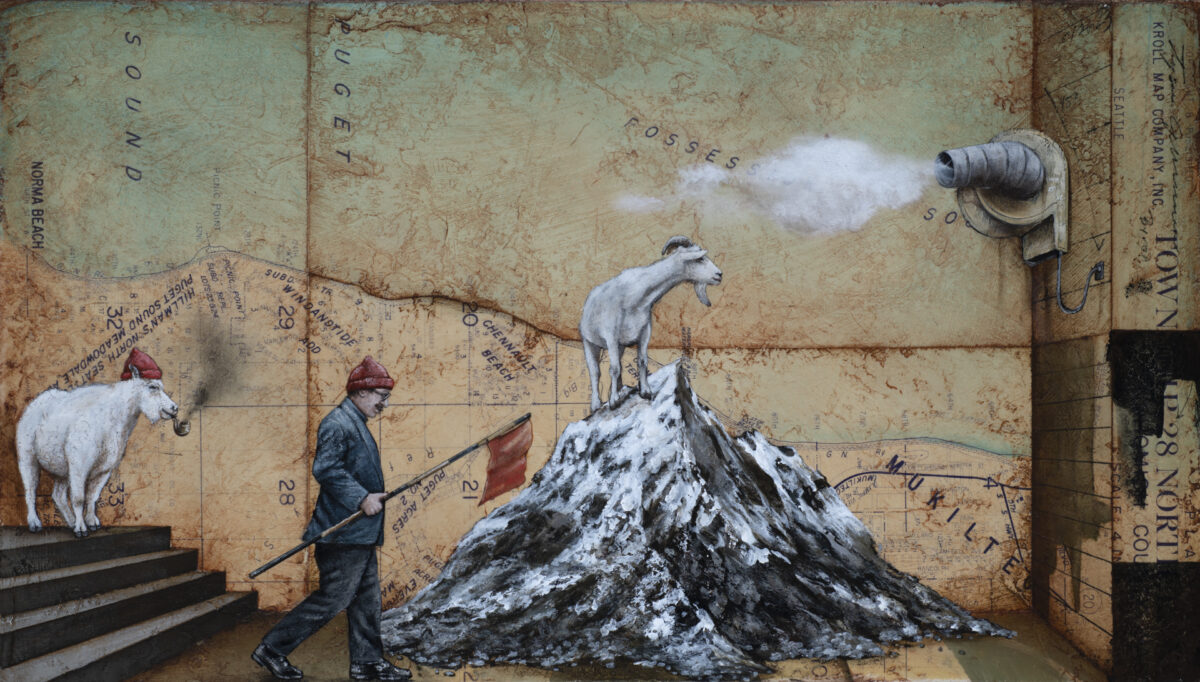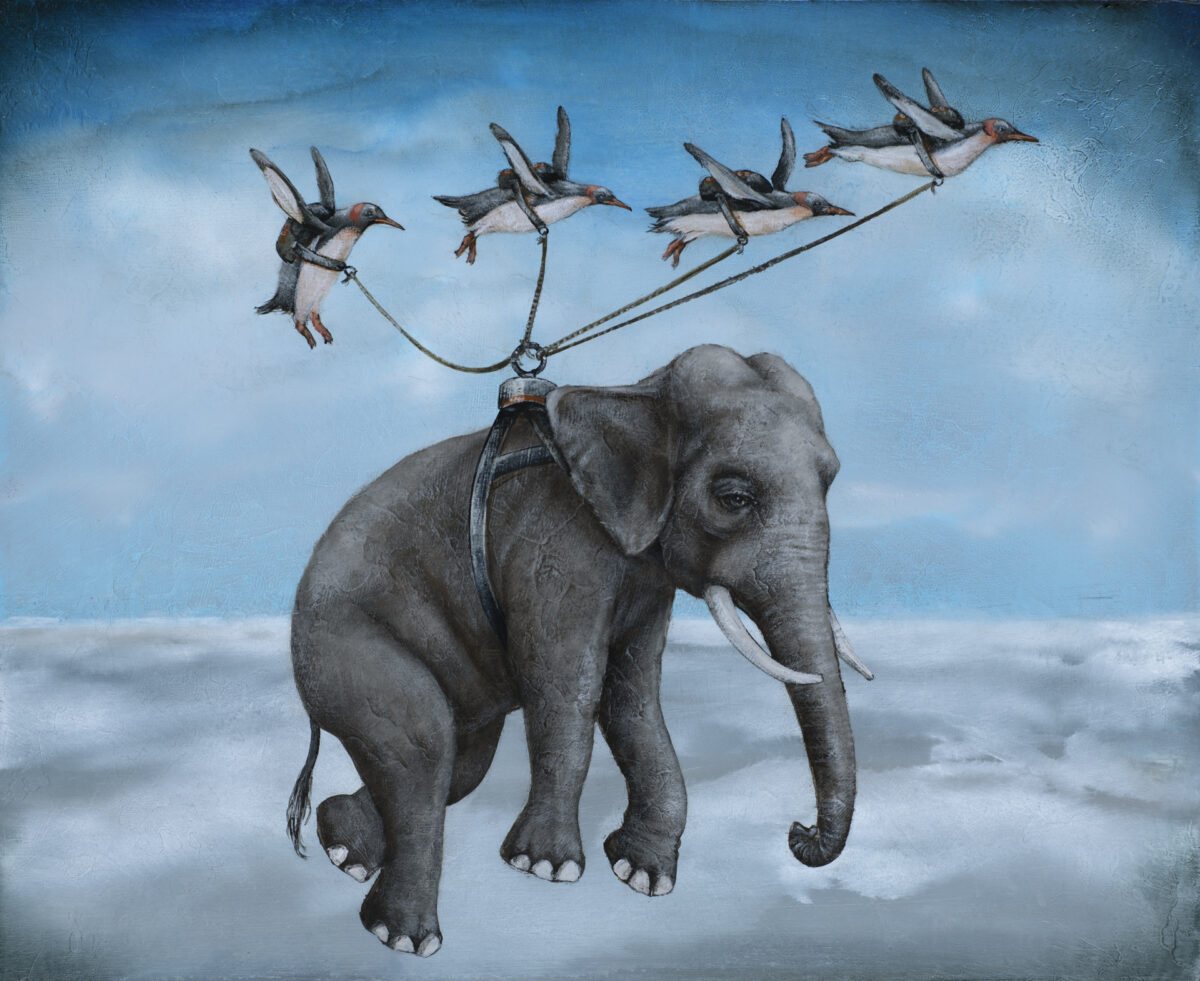Teeter Totter Water Totter
Acrylic on panel, 24 x 36 in, $9,000.00
The ongoing complexity of weighing and documenting certain wildlife species has always been a massive task, usually involving tranquilizing
the animals so that it can be checked in relative safety. With the introduction of the water totter,
a fresh new scheme to approach this dilemma for larger animal life was hatched. The idea was to use some form of bait on one end of the sea-saw that would encourage the animal to climb up onto the undulating buoy. At that point the mechanism would register an accurate weight and
then gently drop its subject back into the water. Loosely tested for a few seasons, the water totter seemed like it was more work than payoff and the
tranquilizer method was put back into practice.

